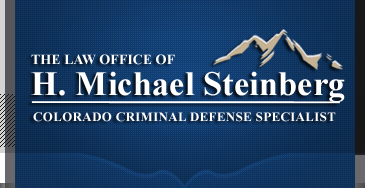






Colorado Criminal Law – Colorado Probation Violations Lawyer for Violations of Misdemeanor and Felony Probation Violation Cases
By Denver Colorado Criminal Defense Attorney – Colorado Criminal Lawyer H. Michael Steinberg
Probation and Colorado Laws
Probation is often part of a criminal defendant’s Colorado sentence. When probation is given, the individual is allowed to remain a member of the community after jail time (if any) has been successfully completed.
Colorado probation laws differ according to the type of probation given, such as:
Formal Probation (Supervised Probation)
Informal Probation (Unsupervised Probation)
Formal Probation (or Supervised Probation) requires the defendant to meet with an assigned probation officer on a regular basis (usually once a month).
Informal Probation (or Unsupervised Probation) requires the defendant to complete certain terms of the sentence and stay out of trouble. Scheduled meetings with a probation officer are not necessary under informal probation.
For all types of probation, the Colorado criminal defendant’s sentence may include any or all of the following:
Community service
Counseling
Physical labor
Drug testing
Jail time as a condition of probation
Length of Probation
Normally, probation (formal and informal) is less time than the maximum sentence under the crime the defendant pled guilty to if sentenced to jail or prison.
However, this can vary depending on the defendant’s circumstances. In some felony cases, formal probation can last for more than a decade.
When Probation is Violated
Probation is no joking matter and should be taken seriously. The penalties for a probation violation depend on the severity of the violation. In some cases, a second chance may be given and the probation violation will not affect the terms or conditions of the probation.
As soon as a probation violation occurs, an arrest may follow shortly thereafter and/or the defendant may be ordered to court for a probation violation hearing.
The Colorado Probation Violation Hearing
During the court hearing, if the violation is NOT the commission of a new crime but rather is a technical violation – the Prosecutor must prove the violation by more than 50% of the evidence, a preponderance of the evidence) as opposed to ‘beyond a reasonable doubt’ which is necessary for a criminal trial.
When a defendant is violated on his/her probation, he/she is entitled to a formal hearing to determine if in fact there was a violation.
• This hearing is usually conducted by the judge who originally sentenced and placed the defendant on probation
• The hearing is informal, without a jury
• The judge hears and weighs the facts and the evidence
• The defendant is allowed to testify and put on a defense
• The standard of proof for a probation violation is far less than a criminal trial. If the judge believes that the defendant more likely than not did what he is accused of doing in violating his probation, then the judge will find him guilty.
Colorado Probation Violation Penalties
The judge has discretion on what punishment to impose, depending on the crime to which the defendant originally was found guilty, along with the nature of the probation violation. The judge may impose one of several punishments:
• Reinstate probation on the same terms and conditions
• Reinstate probation and impose new conditions
• County jail or state prison
• House arrest or electronic monitoring
• Time served (the defendant receives credit for the time in custody)
• Extend probation
• Drug rehabilitation
• Physical labor – Useful Public Service
• Other Community service
• Rehabilitation – general
• Counseling
• Treatment programs
There are several factors that the Judge and Prosecutor use when considering the penalty for a probation violation.
They include:
The seriousness of the probation violation
The nature of the probation violation
The history of previous probation violations
New criminal activity surrounding the probation violation
Aggravating and mitigating circumstances of the probation violation
The probation officer and/or probation department’s view of the probation violation
The probation violation with respect to the probation term (whether it occurred at the beginning, middle, or end of the probationary term)
The Attorney Difference
An experienced Colorado criminal defense attorney, will examine all aspects of your probation violation and look for any potential charge reductions and alternative sentence options.
Probation Violations and Colorado Law
Probation Terms Must Not Be Violated
While on probation, a defendant is subject to a number of terms and conditions, such as:
• Pay a fine or victim restitution
• Perform community service
• Perform physical labor
• Attend counseling, rehab program, domestic violence or anger management classes
• Appear in court for a progress report
• Stay away from a victim or a specific location
• Avoid further criminal activity (or avoid contacts with law enforcement).
How To Avoid Colorado Probation Violations
In many cases, a skilled probation defense lawyer can achieve a favorable result for the defendant by pursuing a number of different strategies, including:
• Obtaining letters of support from employers and others in the community
• Obtaining medical reports
• Contacting the probation officer immediately
• Enrolling in college or a GED preparatory class
• Undergoing a psychological or drug related evaluation
• Paying outstanding fines or restitution
• Completing any outstanding community service or physical labor
• Enrolling in a voluntary community service program
• Securing employment immediately
•E nrolling in a driver’s improvement course, shoplifter’s – theft awareness program, or anger management class
•C ontacting the prosecutor assigned to the case prior to the probation violation
Avoid Colorado Probation Violations
H. Michael Steinberg has successfully defended many Colorado defendants charged with probation violations from serious to non-serious. If you suspect that you violated your probation or have been charged with a probation violation, he may be able to minimize the penalties of your probation violation or avoid a probation violation altogether. Call him to discuss the facts of your case.
As your criminal defense attorney, I want to be prepared for the first court date related to your probation violation. I do not want any surprises. The sooner I have all the facts, the more effective I can be in preparing and defending your probation violation.
Call us now for a free consultation to discuss your legal options.
A More In Depth Examination of Probation
Probation is the period during which a person, “the probationer,” is subject to critical examination and evaluation. The word probation is derived from probatum, Latin for “the act of proving.” Probation is a trial period that must be completed before a person receives greater benefits or freedom.
In the criminal justice system probation is a particular type of sentence for criminal defendants. The judicial authority to order a sentence of probation is granted in statutes on the federal and state levels. Generally, probation allows a convicted defendant to go free with a suspended sentence for a specified duration during good behavior. Probationers are placed under the supervision of a probation officer and must fulfill certain conditions. If the probationer violates a condition of probation, the court may place additional restrictions on the probationer or order the probationer to serve a term of imprisonment.
A judge also may order probation in addition to a period of incarceration. For example, a sentence might consist of a jail term and, after release, probation for a specified period of months or years. Probation is generally reserved for persons sentenced to short terms in jail: it is not combined with a long prison sentence. If a person is subjected to supervision after a stay in prison, the supervision is conducted by a parole officer.
Both probation and parole involve the supervision of convicted criminals, but the systems are distinct. Probation is ordered by a judge; parole is granted by a parole board. Probation is an alternative to prison; parole is the early release from prison. Probation is reserved for persons convicted of less serious offenses; parole is given to persons convicted of serious offenses.
The concept of probation in the criminal law was inspired in the mid-nineteenth century by John Augustus, a resident of Boston. Augustus encountered a man about to be sentenced in a Boston court and believed him to be capable of reform. Augustus posted bail for the man and succeeded in getting his sentence reduced. From 1841 to 1859 Massachusetts judges released approximately 2000 offenders into Augustus’s custody instead of ordering incarceration.
In 1878 Massachusetts enacted the first probation statute, and Boston hired its first probation officer. In 1880 the Massachusetts legislature approved the first statewide hiring of probation officers. By 1925 all states had laws governing probation for juveniles, and by 1939 approximately 39 states were maintaining laws on probation for adults. By 1967 adult probation was allowed by statute in all states.
Probation statutes generally identify the crimes available for a sentence of probation, or, conversely, they identify crimes for which probation may not be ordered.
Statutes may also identify conditions of probation. These are actions that a probationer must do or refrain from doing during probation. Though conditions may be spelled out in statutes, a sentencing judge retains wide discretion to fashion conditions according to the best interests of both the public and the defendant. In most states a probationer must not possess a firearm, commit another offense, or possess illegal drugs during the probation period. Probationers must also report regularly to a probation officer.
A judge may place additional conditions on a probationer. For example, if a defendant pleads guilty to assault, the court may order him to stay a specified distance away from the victim of the assault. In a conviction for a small amount of marijuana a judge may order the defendant to complete treatment for drug use. If a probationer violates any condition of probation, the court may order additional conditions or impose a prison sentence that does not exceed the maximum term of imprisonment that could have been imposed for the crime.
Judges in state court generally have wide discretion in sentencing. In determining whether to sentence a defendant to probation, the court may consider a variety of factors, including the nature and circumstances of the offense and the defendant’s criminal history.
Other Articles of Interest:
- Colorado Drug Crimes Issues and Defense
- Prior Felony Convictions In Colorado – Applications For Probation § 18-1.3-201
- Colorado Law: Understanding Colorado Domestic Violence Cases – FAST TRACK and Other Laws That Impact Your DV Case
- Indeterminate Sentence for Sex Offenders (18-1.3-1004)
- The Ins & Outs Of Colorado Parole Revocation Hearings – How They Work -What To Expect






















